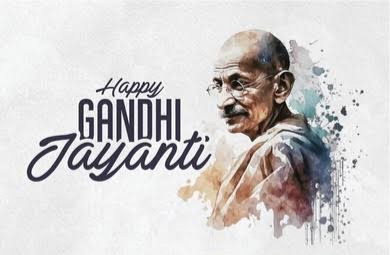New Delhi: Today, India and the world celebrate Gandhi Jayanti, marking the 155th birth anniversary of Mahatma Gandhi, the Father of the Nation. This day is not only a national holiday in India but also recognized globally as the International Day of Non-Violence, reflecting Gandhi’s enduring legacy of peace and non-violence.
History and Significance
Mahatma Gandhi, born on October 2, 1869, in Porbandar, Gujarat, played a pivotal role in India’s struggle for independence from British rule. His philosophy of Satyagraha, which emphasizes truth and non-violence, inspired millions and led to significant movements such as the Non-Cooperation Movement, the Salt March, and the Quit India Movement. Gandhi’s efforts culminated in India achieving independence in 1947, and his teachings continue to inspire movements for social justice worldwide.
Celebrations and Observances
Gandhi Jayanti is observed with various cultural programs, prayer meetings, and remembrance ceremonies. In New Delhi, dignitaries including the Prime Minister and President pay homage at Raj Ghat, Gandhi’s memorial3. Schools and educational institutions across the country organize events where students sing Gandhi’s favorite bhajan, “Raghupati Raghav Raja Ram,” and participate in debates, film screenings, and fancy dress competitions.
Facts About Mahatma Gandhi
Gandhi was nominated for the Nobel Peace Prize five times but never received it.
His principle of non-violence extended beyond physical acts to include thoughts and words.
Gandhi led a simple life, often making his own clothes and urging others to adopt a similar lifestyle.
Honoring Gandhi’s Legacy
Gandhi Jayanti is a day to reflect on the values Gandhi stood for: truth, non-violence, simplicity, and self-reliance. His teachings remind us of the power of peaceful resistance and the importance of standing up for justice without resorting to violence. As we celebrate this day, let us strive to implement these principles in our lives and work towards a more peaceful and just world.







